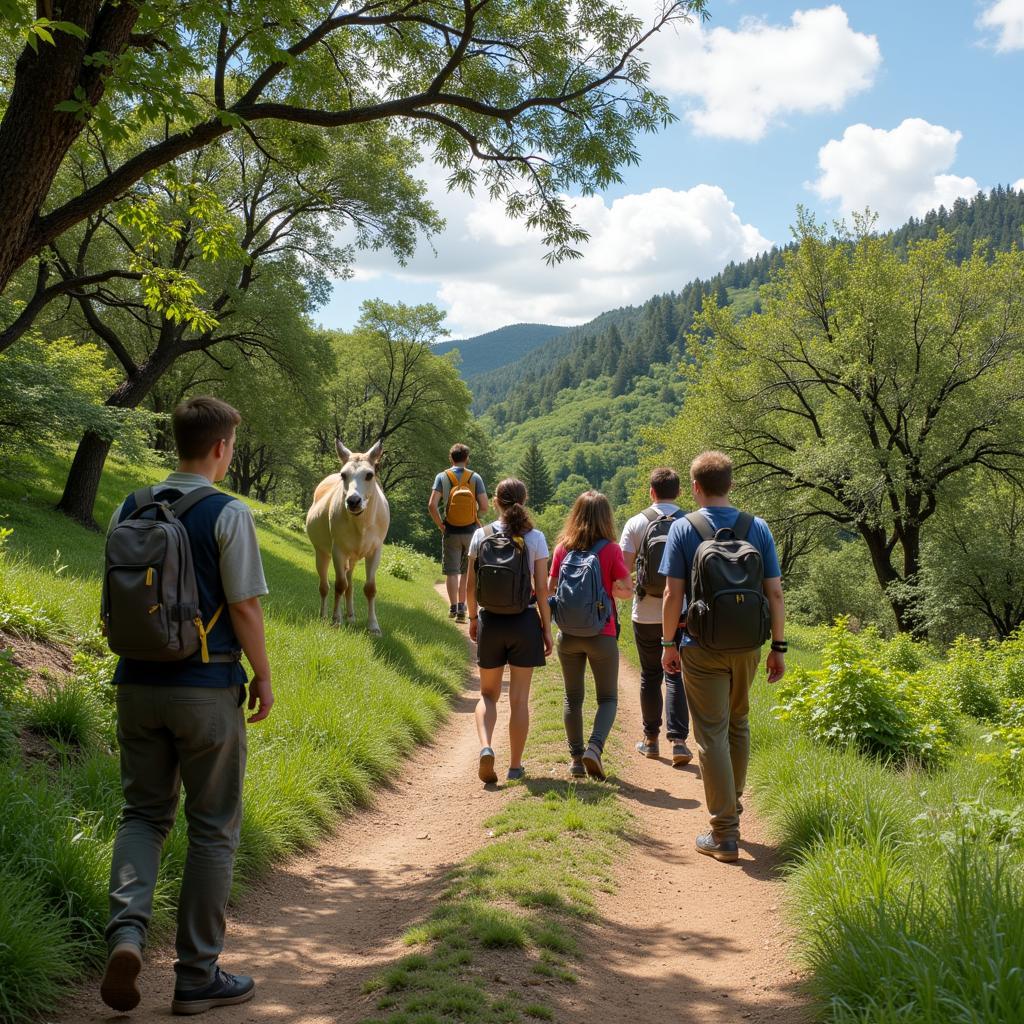Environmental conservation and tourism development present a complex challenge that frequently appears in IELTS Writing Task 2. Based on recent exam trends and sustainable tourism in sensitive environments, this topic has appeared in various forms, particularly focusing on balancing tourism benefits with environmental protection.
Let’s examine one of the most representative questions that has appeared in recent IELTS tests:
Some people believe that tourists should be banned from visiting fragile natural environments to protect these areas. Others think controlled tourism can support conservation efforts. Discuss both views and give your opinion.
Analysis of the Question
This question requires candidates to:
- Discuss arguments for and against tourist access to fragile ecosystems
- Present a balanced analysis of both perspectives
- Provide a clear personal stance
- Support arguments with relevant examples
Sample Essay 1 (Band 8.5)
The debate over whether to restrict tourism in delicate ecosystems has gained significant attention as promoting sustainable tourism becomes increasingly important. While some advocate for complete tourist bans to preserve these environments, others argue that regulated tourism can actually benefit conservation efforts. In my view, carefully managed tourism presents the most viable solution.
Those supporting tourist restrictions make compelling arguments. Fragile ecosystems can suffer irreversible damage from excessive human presence, including habitat disruption, wildlife behavioral changes, and physical degradation of natural features. For instance, the Galapagos Islands have experienced significant environmental stress due to increasing tourist numbers, leading to threatened endemic species and damaged coral reefs.
However, controlled tourism can positively contribute to conservation. When properly managed, tourism revenue provides essential funding for environmental protection programs and creates economic incentives for local communities to preserve natural areas. The success of Rwanda’s mountain gorilla conservation program demonstrates how regulated tourism can finance habitat protection while raising global awareness about endangered species.
 Sustainable tourism practices in protected natural area
Sustainable tourism practices in protected natural area
I believe the solution lies in implementing strict regulations rather than complete bans. This approach should include visitor number limitations, mandatory guided tours, designated paths, and comprehensive education programs. Costa Rica’s national park system exemplifies this balanced approach, where controlled tourism supports conservation while protecting sensitive ecosystems.
In conclusion, while unrestricted tourism poses serious threats to fragile environments, complete bans may be counterproductive. The key lies in developing and enforcing robust management systems that protect these precious ecosystems while harnessing tourism’s potential to support conservation efforts.
Sample Essay 2 (Band 6.5)
Some people think tourists should not be allowed to visit sensitive natural areas, but others believe tourism can help protect these places. I will discuss both sides and give my opinion.
On one side, people worry about damage to nature. When too many tourists visit fragile places, they can harm plants and animals. For example, many beaches have been damaged because of too many visitors leaving trash and stepping on coral reefs. Also, wild animals might change their normal behavior when there are too many humans around.
However, tourism can also help protect nature. When tourists pay to visit natural areas, this money can be used to protect the environment. Local people can get jobs as guides or park rangers instead of having to cut down trees or hunt animals to make money. For example, Tourism in far-reaching places: advantages vs. disadvantages shows how some countries use tourism money to protect forests and wildlife.
I think the best solution is to have rules for tourists but not stop them completely. Places should limit how many people can visit and make sure tourists follow strict rules about where they can go and what they can do. This way, nature can be protected while still allowing people to see and learn about these special places.
Analysis of Band Scores
Band 8.5 Essay Analysis:
- Sophisticated vocabulary and complex structures
- Clear progression of ideas
- Relevant examples and detailed explanations
- Coherent paragraphing
- Natural use of linking devices
Band 6.5 Essay Analysis:
- Simple but clear structure
- Basic vocabulary with some attempts at complex expressions
- Limited range of structures
- Some development of ideas
- Basic linking words
Key Vocabulary
- Fragile ecosystem (n.) /ˈfrædʒaɪl ˈiːkəʊsɪstəm/ – delicate natural environment
- Conservation efforts (n.) /ˌkɒnsəˈveɪʃən ˈefəts/ – activities to protect nature
- Endemic species (n.) /enˈdemɪk ˈspiːʃiːz/ – species native to specific area
- Irreversible damage (adj.) /ˌɪrɪˈvɜːsəbl ˈdæmɪdʒ/ – permanent harm
- Habitat disruption (n.) /ˈhæbɪtæt dɪsˈrʌpʃən/ – interference with natural living areas
For practice, try writing your own essay on this topic and share it in the comments. Consider also exploring related topics like how to promote responsible tourism for additional perspective on sustainable travel practices.


